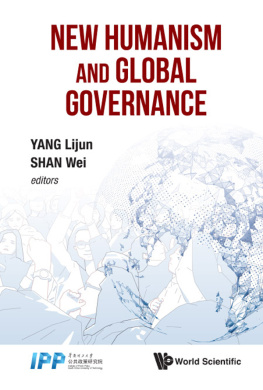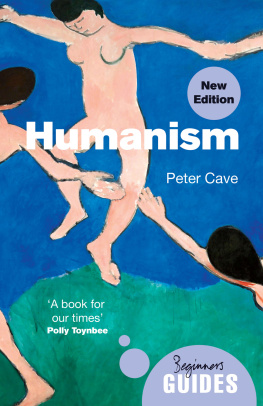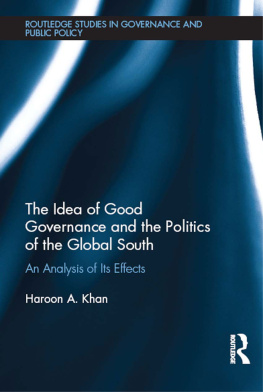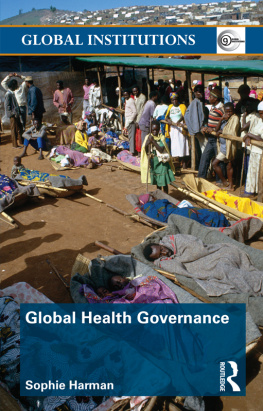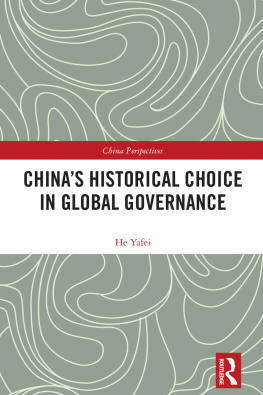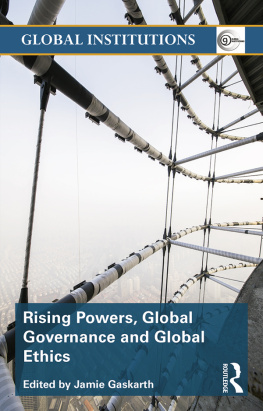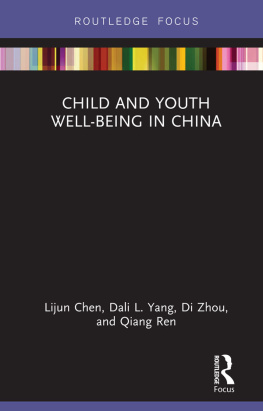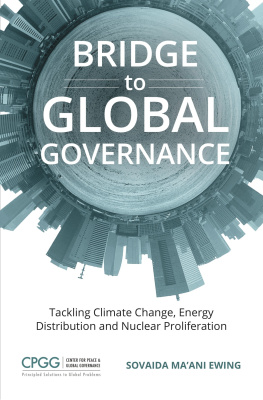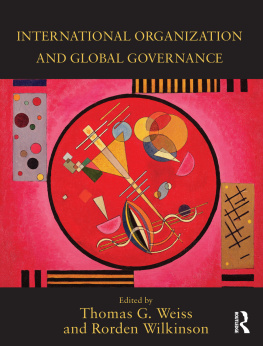Lijun Yang - New Humanism and Global Governance
Here you can read online Lijun Yang - New Humanism and Global Governance full text of the book (entire story) in english for free. Download pdf and epub, get meaning, cover and reviews about this ebook. year: 2018, publisher: World Scientific Publishing Company Pte Limited, genre: Politics. Description of the work, (preface) as well as reviews are available. Best literature library LitArk.com created for fans of good reading and offers a wide selection of genres:
Romance novel
Science fiction
Adventure
Detective
Science
History
Home and family
Prose
Art
Politics
Computer
Non-fiction
Religion
Business
Children
Humor
Choose a favorite category and find really read worthwhile books. Enjoy immersion in the world of imagination, feel the emotions of the characters or learn something new for yourself, make an fascinating discovery.
- Book:New Humanism and Global Governance
- Author:
- Publisher:World Scientific Publishing Company Pte Limited
- Genre:
- Year:2018
- Rating:5 / 5
- Favourites:Add to favourites
- Your mark:
- 100
- 1
- 2
- 3
- 4
- 5
New Humanism and Global Governance: summary, description and annotation
We offer to read an annotation, description, summary or preface (depends on what the author of the book "New Humanism and Global Governance" wrote himself). If you haven't found the necessary information about the book — write in the comments, we will try to find it.
New Humanism and Global Governance — read online for free the complete book (whole text) full work
Below is the text of the book, divided by pages. System saving the place of the last page read, allows you to conveniently read the book "New Humanism and Global Governance" online for free, without having to search again every time where you left off. Put a bookmark, and you can go to the page where you finished reading at any time.
Font size:
Interval:
Bookmark:


https://www.worldscientific.com/worldscibooks/10.1142/10882#t=suppl
 Dr YANG Lijun is Professor of Sociology at the Institute of Public Policy at South China University of Technology (SCUT). She has studied social changes and social movements in contemporary China, particularly the Cultural Revolution and nationalism. Her research papers have appeared in academic journals such as The China Quarterly, Journal of Contemporary China, The Review of History, Asian Studies, and ChineseAffairs. Her book Social Structure and the Cultural Revolution in China: Citizenship and Collective Violence was selected as one of the five best books in all social science subjects in the Asian Pacific region, and for this she received the Ohira Memorial Foundation Award in 2005. She has also edited and co-edited many volumes on contemporary China.
Dr YANG Lijun is Professor of Sociology at the Institute of Public Policy at South China University of Technology (SCUT). She has studied social changes and social movements in contemporary China, particularly the Cultural Revolution and nationalism. Her research papers have appeared in academic journals such as The China Quarterly, Journal of Contemporary China, The Review of History, Asian Studies, and ChineseAffairs. Her book Social Structure and the Cultural Revolution in China: Citizenship and Collective Violence was selected as one of the five best books in all social science subjects in the Asian Pacific region, and for this she received the Ohira Memorial Foundation Award in 2005. She has also edited and co-edited many volumes on contemporary China. Dr SHAN Wei received his BA and MA in International Studies from Peking University and PhD in Political Science from Texas A&M University. His research focuses on the political behavior of citizens and the elite in the context of political and economic development. Topics he has covered include Chinese citizens political participation, changes in political culture, masselite relations, political leadership and factional politics within the elite group. His research paper appears in China Quarterly and other academic journals. He is the co-editor of The State of Rural China: Peasants, Agriculture and Rural Society in the Reform Era.
Dr SHAN Wei received his BA and MA in International Studies from Peking University and PhD in Political Science from Texas A&M University. His research focuses on the political behavior of citizens and the elite in the context of political and economic development. Topics he has covered include Chinese citizens political participation, changes in political culture, masselite relations, political leadership and factional politics within the elite group. His research paper appears in China Quarterly and other academic journals. He is the co-editor of The State of Rural China: Peasants, Agriculture and Rural Society in the Reform Era.Font size:
Interval:
Bookmark:
Similar books «New Humanism and Global Governance»
Look at similar books to New Humanism and Global Governance. We have selected literature similar in name and meaning in the hope of providing readers with more options to find new, interesting, not yet read works.
Discussion, reviews of the book New Humanism and Global Governance and just readers' own opinions. Leave your comments, write what you think about the work, its meaning or the main characters. Specify what exactly you liked and what you didn't like, and why you think so.

